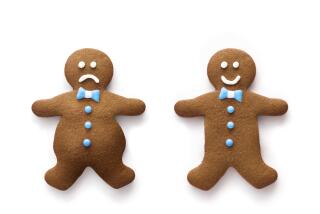. . . And Tell the Truth
- Share via
Call it human nature, the desire to sound thin or the need to be culturally acceptable. When it comes to reporting how much we weigh, or what we eat, many of us underestimate--either knowingly or not.
A study published last year in the American Journal of Clinical Nutrition reported significant errors in the self-reported weights of certain subgroups of the 11,284 people surveyed. The National Center for Health Statistics survey found that overweight women underreported their weight by an average of 7 1/2 pounds, whereas overweight men underreported their weight by an average of three pounds.
The authors concluded that shaving a few pounds “appears to be in the direction of cultural ideals.” Because of the pressure for women to be thin, they underreported their weight more than men, while underweight men over - reported their weight more than did their skinny female counterparts.
There is obviously no harm in fudging a few pounds on your driver’s license. But when it comes to setting public policy based on self-reported weights or food intake, a little white lie can have more serious consequences.
A study conducted recently by Department of Agriculture scientist Walter Mertz found that Americans may be consuming far more calories than government surveys show. Mertz found that volunteers reported consuming almost 20% fewer calories on food intake records before the study than they actually needed to maintain weight during the study. Of the 266 volunteers, 81% underreported their caloric intake.
The study concluded that, if substantiated by other research, the results could have far-reaching implications since self-reported food records are used to judge the nutritional status of the population as well as to develop health guidelines and assess consumption patterns.





